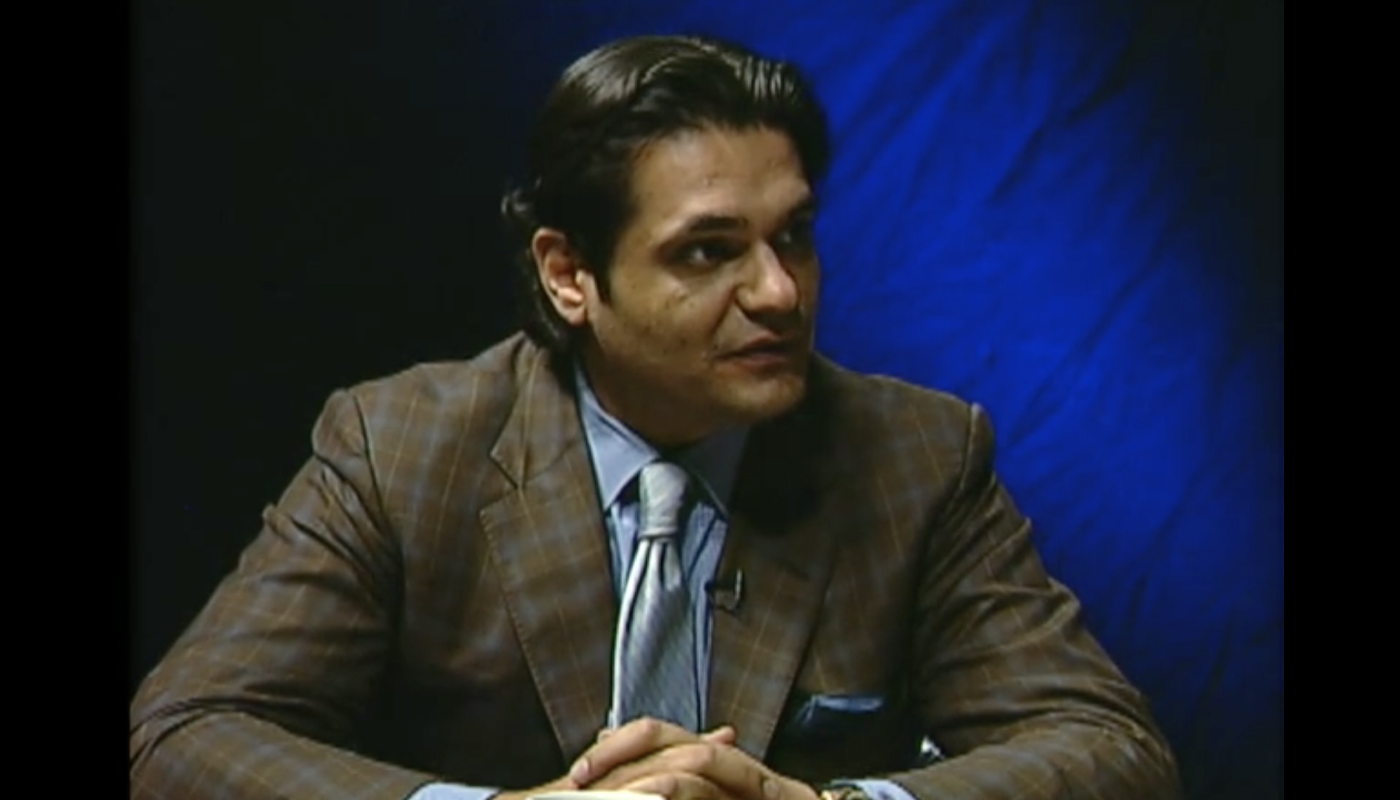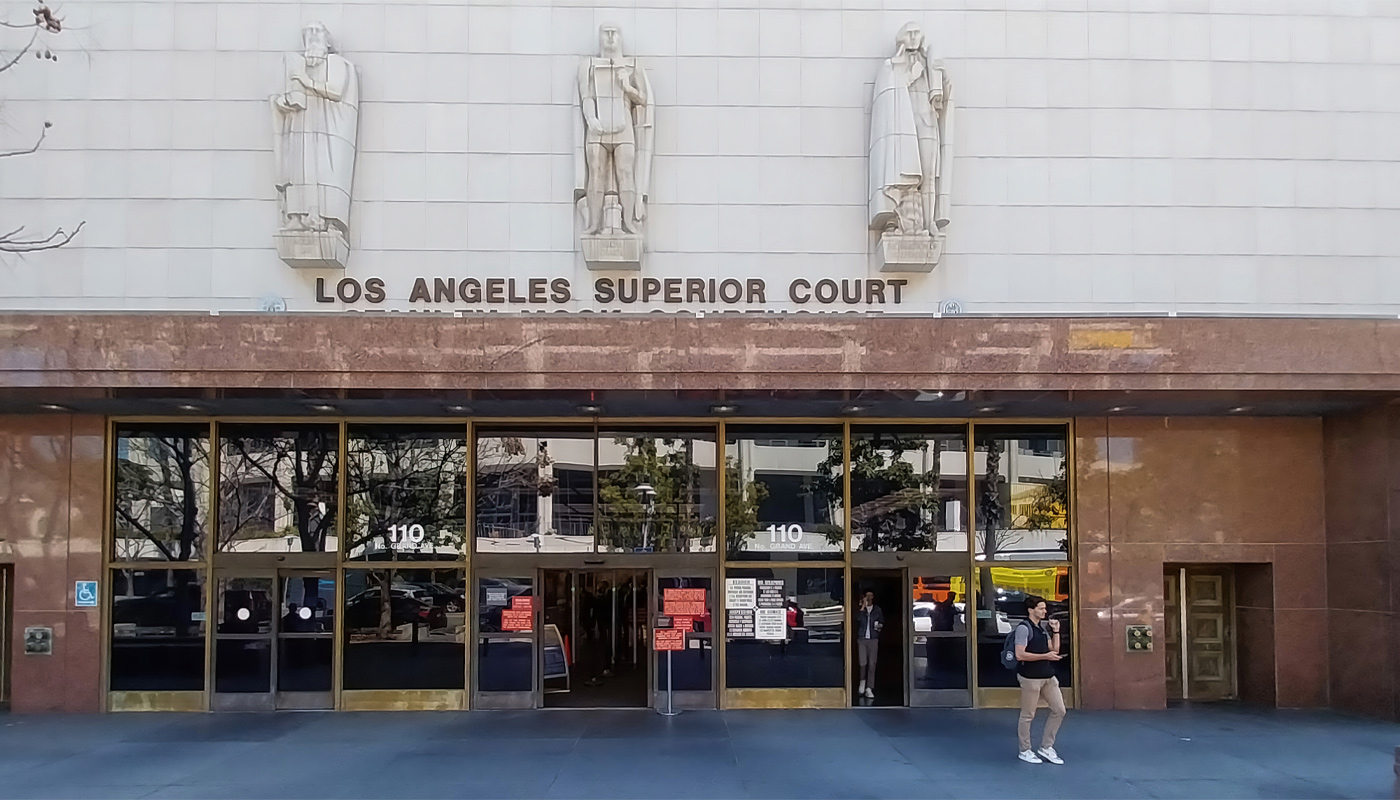
News writer; Opinion columnist
How would you react if you won $2.5 million playing the lottery? Would you dance, sing, laugh, or do cartwheels down the halls of the lottery headquarters as you waited to collect your check? Those were the kinds of reactions that the Michigan State Lottery office employees were used to seeing when big winners would walk into their office ready to cash in tickets worth millions of dollars.
But what made Viktor Gjonaj stand out wasn't his 6'5” height or designer Italian suit; it was that he didn't do any of these things. In fact, he didn't do much of anything at all. Viktor waited to collect his millions with the same indifference most people show waiting in a supermarket checkout line.
Maybe it was because he was used to winning. In nine months, he won several multi-million dollar jackpots. Or maybe it was because he had a darker secret that was even bigger than the prizes he won.
Who is Viktor Gjonaj
Born in Albania, Viktor Gjonaj emigrated to the United States with his family as a child. Despite his limited English skills, Viktor adapted quickly to life in the States and showed a true talent for business at an early age.
When he was twelve years old, he helped his parents sell their home. At sixteen, he negotiated so aggressively for a car that the dealership owner offered him a job at his real estate firm, which he took the day after he turned eighteen.
Viktor developed a reputation as a hardnosed and hardworking commercial real estate broker in Detroit, Michigan. He started his days at 6:00 AM and handled deals for Fortune 500 companies such as Walmart, McDonald's, and Burger King.
But he was also known for taking risks. He would buy properties he couldn't afford, only to flip them weeks later for a profit. He was known for his catchphrase, “People lie. Numbers don't”.
Unfortunately, it was his obsession with numbers that led to his downfall.
The numbers
Viktor embodied the spirit of “work hard, play hard.” After spending the day brokering deals, he liked to go to a local bar where he could relax with a cocktail and play Club Keno, a lottery game that held live drawings every few minutes. He loved the game so much that the bartenders would let him sit at the bar after hours so he could keep playing.
“That's where I fell in love with the algorithms of numbers,” he told a reporter in an interview. He used the word algorithm because he believed there was a pattern in the lottery drawings that could be understood and allow him to pick winning numbers.
He created an app that he believed would help him predict the game's numbers and won a $52,000 prize that he saw as an affirmation of his system.
When his favorite Club Keno bar closed down, he switched to a new game that was easier to play at home. The Daily 4, a state-run lottery draw game, held twice-daily drawings, with players selecting four numbers between one and nine. Tickets cost $1, and the game paid out $5,000 if you correctly selected all four numbers.
With one ticket, your odds of winning were 1:10,000, but players could also purchase a “wheel” ticket for $24. A wheel ticket allowed you to play every combination of a particular set of four numbers (i.e., 1-2-3-4, 4-3-2-1, 2-1-4-3, etc.) and lowered your odds of winning to just 1:459.
For comparison, the odds of winning a Powerball jackpot are approximately 1:292,000,000.
The system
Viktor truly believed in his system and filled out spreadsheets and charts with results from the Daily 4, identifying different patterns and shapes that he was convinced would tell him which numbers to pick. Because he was so confident of his ability to win, he didn't buy one or two tickets at a time; he would purchase thousands of wheels for a single drawing so that if his numbers hit, his total prize would be in the millions.
“When a certain number came out, my number would be shortly thereafter,” he said.
Studying his charts, he believed that the number 7-8-0-0 was due to win. He bought 1,000 wheel tickets on June 15, 16, and 17 but didn't hit. He tried again on June 18; this time, his numbers came up, and his winning tickets had a combined value of $2.5 million. When he brought his thousand tickets to the Michigan Lottery office, it took officials over six hours to verify each one and write a $5,000 check for every winner.
The Imperium
Once he started logging multi-million dollar wins, Viktor decided to open his own real estate business, The Imperium Group. He hired others to run the company and then locked himself in his office, where he dedicated himself entirely to playing the lottery.
One of his biggest challenges as a high-volume player was purchasing enough tickets to keep up with his ambitions. After contacting different retailers, he partnered with Piccolo's Liquor and Deli store. The owners of Piccolo's were happy to print thousands of tickets because they received a 6% cut of every ticket sold and an additional 2% of any prize money won.
In 2015, the store sold $51,745 in tickets. In 2016, when Viktor started playing the game heavily, Piccolo's sold $1.3 million in tickets. As his rate of play increased, the ticket printing machines at the store ran almost constantly, creating 3.92 million tickets a year, which required printing one ticket every eight seconds.
The sheer amount of time it took him to buy tickets, check for winners, and fill out claim forms meant Viktor needed a partner to help him with his scheme.
Gregory Vitto
Gregory Vitto was going through tough times when he reconnected with Viktor, an old friend of his, at his mother's funeral. After being laid off from his job as a construction foreman, Vitto struggled to raise the money he needed to pay his daughter's college tuition. That's why he thought it was a miracle when Viktor offered him a position at the Imperium Group. He even got his real estate license to help the organization make deals.
However, once he started working there, he quickly realized that his job had nothing to do with commercial real estate and everything to do with helping his boss carry out his increasingly complicated lottery schemes.
He first realized that despite Viktor’s success, his system was completely fake. “Don't try to wrap your head around it. He had no system,” Vitto told a reporter.
Because The Daily Four numbers were picked from a ball machine, the results were truly random, and there was no way to predict which would appear in a given drawing. Vitto understood that his boss's wins were primarily based on playing a high volume of tickets in a game with relatively good odds.
But the job paid well, and he needed the work, so he kept his head down and did whatever Viktor asked. One night, as he was leaving work, Viktor told him to play the numbers 8-6-4-3 for that night's drawing.
Vitto bought two tickets but never checked the numbers. That night, Viktor called him and asked, “How does it feel to be rich?” The numbers had hit, and Vitto, who had once been so broke he needed government assistance, was now $10,000 richer.
Big winner
While Vitto felt thrilled to have won $10,000 from two tickets, he discovered that Viktor held 2,000 tickets with those numbers worth $10 million. Vitto says they stayed up all night drinking Red Bulls, laughing, and filling out lottery claim forms.
Viktor scored another big win in November 2017 when he purchased 800 wheel tickets with the numbers 2-7-0-6 for $19,200. The owners of Piccolo's called him to say his numbers had hit, and he won another $4 million. In February 2017, he won $9.5 million. He bought so many winning tickets he had to hire crews of people just to fill out all of his claim forms.
Over the next nine months, Viktor went on one of Michigan history's most incredible lottery win streaks. He won over $30 million playing daily draw games. He spent so much time at the state lottery office that he was on a first-name basis with most of the staff there.
He spent money on his family, building a dream home for his four daughters in a tony Michigan suburb. He even took his wife to a Jennifer Lopez concert in Las Vegas, where he paid extra to meet Jennifer backstage.
Vitto was also doing very well because Viktor paid him a bonus every time he won, even though Vitto didn't spend his own money to buy tickets.
But as the Notorious BIG says, “Mo money, mo problems,” and as Viktor kept winning the state lottery, officials changed the rules to slow him down. They limited individual lottery terminals to processing just $5,000 worth of tickets a day, and he was only allowed to drop off 200 forms at the state lottery office per day.
High-ranking officials even investigated Viktor to see if he was cheating but eventually concluded that he won so often because he spent so much money buying tickets. Vitto claimed that he spent up to $100,000 a day purchasing tickets.
Big loser
On March 17, 2018, Viktor won a $2 million jackpot. It was the last time he would collect a seven-figure prize. He was still spending vast amounts of money on tickets, but the big prizes had dried up. The truth was that despite his reams of numbers, Viktor had no system, and when his luck ran out, he couldn't stop playing and losing.
The problem was that he used the money from his big jackpots to reinvest in more tickets. He didn't have the cash flow to keep up his torrid pace of ticket buying without the wins. But Viktor was addicted. He couldn't stop playing and needed a new source of cash to support his habit.
Viktor started making more real estate deals. He convinced investors to pay cash for a share in valuable properties that the Imperium Group controlled. The only problem is that Imperium didn't actually own the properties. Instead, he would forge documents to make it appear like he owned the properties.
In the summer of 2018, Viktor owed his investors millions of dollars. He was convinced he could pay them back by winning another big jackpot, but the next great win never came, and he fell further into debt.
By 2019, Viktor knew he was in big trouble. “By mid-April, May, June of 2019, everything was starting to get really crazy,” he told a reporter. “The losses were mounting.”
Eventually, his investors began speaking with one another, and they realized that Viktor was selling the same properties multiple times to different people. He also owed hundreds of thousands of dollars to Piccolo's and other stories that were selling him tickets on credit.
Vitto, who had made a small fortune by working for Viktor, had to pay almost all of it back to help settle the debts his friend had incurred.
The big house
For nine happy months, Viktor Gjonaj seemed unstoppable as he piled up win after win and collected $30 million, but as his jackpots dried up, his debts became insurmountable. Investors filed civil lawsuits against him to reclaim their funds, and he realized that he had not only destroyed his own life but also those of his family and friends who depended on him.
He had a mental breakdown, and police found him in a hotel room full of drugs, cash, and what appeared to be suicide notes. He was committed to a mental hospital and then went into hiding for six months.
Federal officials arrested him on January 28, 2018, and charged him with wire fraud. In March 2021, Viktor agreed to plead guilty to one count of wire fraud and make restitution payments of over $25 million, even though his lawyer admits that he is now entirely destitute and could never repay the money. He was also sentenced to 54 months in Federal prison and was ordered to report to FCI Morgantown in West Virginia, far from his family in Michigan.
With Viktor in prison and his friends and investors out millions of dollars, it may seem like this story has no winners, but that's not entirely true. Piccolo's, the store where Viktor bought most of his lottery tickets, collected over $2.3 million in commissions during his buying spree.
The family that owned the store sold it and is said to be enjoying a comfortable retirement.

















Comments